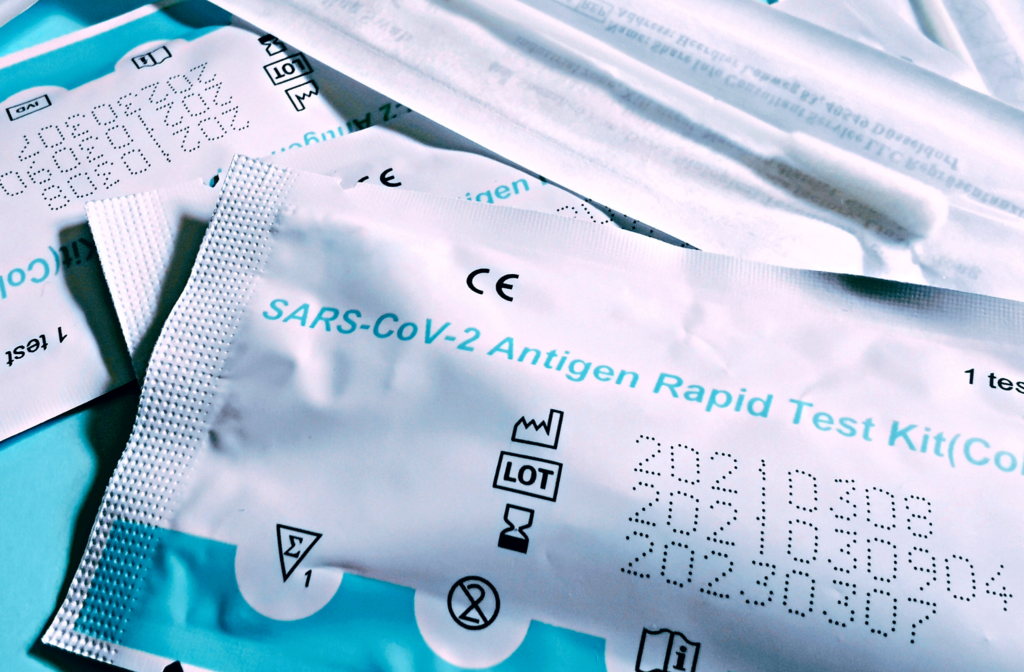COVID-19 Test Recalls – Illegal Distribution and Counterfeiting
The United States is currently facing efficacy and distribution challenges for COVID-19 tests. These issues, which have been occurring since 2021, have seen a recent influx due to a surge in COVID-19 cases, with the Omicron variant. An increase in infections has meant an increase in the need for testing, putting pressure on manufacturers.
Not all tests manufactured, however, are suitable for the US market. Many have been recalled and others distributed illegally; without approval from the FDA. Tests imported from overseas did not all gain authorization from the FDA, leading the organization to issue warnings. According to MedTech Dive, these test issues indicate a growing problem for the market.

Efficacy Issues and Recalls
Many COVID-19 tests have already been recalled due to their inadequacy. Randox, Spartan Bioscience and Quidel have all been hit by recalls. The circumstances which have led to fast tracking medical products may have also caused proper screening and quality assurance to suffer.
In 2020, Spartan Bioscience had their rapid COVID-19 tests recalled because of concerns from Health Canada. Randox had to recall up to 750, 000 unused kits, also due to concerns around their safety. The recall order came from MHRA in 2020, after fears over sterility. Quidel faced a Class I recall, with the devices in question potentially leading to serious injuries or death. Their real time PCR had a significant risk of false negative results. For patients, this could lead to delayed diagnosis or incorrect treatment, potentially harming their health. In addition, false negatives mean no isolation and therefore further spread of the virus to others. In April 2021, Quidel issued the recall.

Illegal distribution
The proliferation of COVID-19 rapid tests not only led to recalls due to efficacy such as with Spartan Bioscience (now Genomadix), Randox, and Quidel, but has also led to illegal distribution and counterfeiting. Tests have been imported into the US without proper authority. Affected by this was: Celltrion, Acon Laboratories and SD Biosensor.
Celltrion recalled all lots of their Celltrion DiaTrust COVID-19 Ag Rapid Test. This was due to the European version of the product not being approved to be marketed in the US, but being distributed anyway. The packaging and labeling for the kit, a European test kit, differs from that of the US one.
Similarly, Acon Laboratories had to recall their ACON Biotech Flowflex SARS-CoV-2 Antigen Rapid Tests, due to a lack of authorization or approval from the FDA. For these manufacturers, there was a risk of false results, both false negatives and false positives. False positives can lead to a delay in the correct diagnosis of the actual illness and therefore a lack of appropriate treatment.
SD Biosensor also faced a Class I recall for their SD Biosensor STANDARD Q COVID-19 Ag Home Test. The product was, again, not cleared by the FDA for the US market. This was due to insufficient evidence to show that the test’s performance was accurate. Again, there was a risk of false results.

Future-Proofing Supply Chains
Due to the scale and complexity of medical supply chains, identifying problems with efficacy and distribution early is a challenge. In its analysis of the tender market for Europe alone, Vamstar identified more than 8, 400 lots related to COVID-19 spending which were analyzed from the beginning of the pandemic. For those directly related to COVID-19 testing there were more than 450 suppliers. While private channels will continue to face these challenges, public procurement now has new tools to future-proof their supply chains and mitigate supplier risk.
Vamstar, an artificial intelligence powered healthcare marketplace, is now working with the University of Sheffield on a data-driven platform which will analyze NHS and global procurement data. In turn, this analysis will equip the NHS with the evidence of suppliers’ credibility and their capability to fulfill contract tenders. The platform, with its risk identification, aims to reduce over-reliance on a few suppliers, ensure quality of goods and bypass shortages.
In this way, sub-standard medical equipment, like the tests which were recalled, and unapproved products can be avoided by buyers.
Public Procurement | Tender market | Distribution Challenges | Omicron | Supply Chains | Suppliers | Buyers | Medical Equipment | COVID-19 | Contract Tenders | Artificial Intelligence | Mitigate Supplier Risk | Medical Technology

